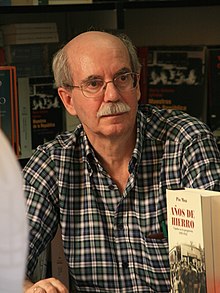
Admiral-General Luis Carrero Blanco was a Spanish Navy officer and politician. A long-time confidant and right-hand man of dictator Francisco Franco, Carrero served as Spain's Premier. Upon graduating from the naval academy Carrero Blanco participated in the Rif War, and later the Spanish Civil War, in which he supported the Rebel faction. He became one of the most prominent figures in the Francoist dictatorship's power structure and held throughout his career a number of high-ranking offices such as those of Undersecretary of the Presidency from 1941 to 1967 and Franco's deputy from 1967 to 1973. He also was the main drafter behind the 1947 Law of Succession to the Headship of the State. Franco handpicked him as his successor in the role of head of government, with Carrero thereby taking office in June 1973.
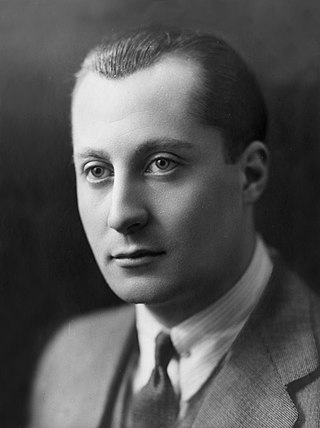
José Antonio Primo de Rivera y Sáenz de Heredia, 1st Duke of Primo de Rivera, 3rd Marquess of Estella GE, often referred to simply as José Antonio, was a Spanish fascist politician who founded the Falange Española, later Falange Española de las JONS.
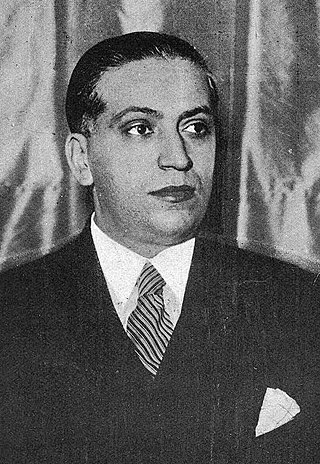
José Calvo Sotelo, 1st Duke of Calvo Sotelo, GE was a Spanish jurist and politician. He was the minister of finance during the dictatorship of Miguel Primo de Rivera and a leading figure during the Spanish Second Republic. During this period. he became an important part of Spanish Renovation, a monarchist movement. Calvo Sotelo's assassination in July 1936 by the bodyguard of PSOE party leader Indalecio Prieto was an immediate prelude to the triggering of the Spanish military coup of July 1936 that was plotted since February 1936, the partial failure of which marked the beginning of the Spanish Civil War.

Carlos Arias Navarro, 1st Marquess of Arias Navarro was the prime Minister of Spain during the final years of the Francoist dictatorship and the beginning of the Spanish transition to democracy.

The Moscow Gold, or alternatively Gold of the Republic, was 510 tonnes of gold, corresponding to 72.6% of the total gold reserves of the Bank of Spain, that were transferred from their original location in Madrid to the Soviet Union a few months after the outbreak of the Spanish Civil War. This transfer was made by order of the government of the Second Spanish Republic, presided over by Francisco Largo Caballero, through the initiative of his Minister of Finance, Juan Negrín. The term also encompasses the subsequent issues relating with the gold's sale to the USSR and the use of the funds obtained. The remaining quarter of the Bank's gold reserves, 193 tonnes, was transported and exchanged into currency in France, an operation which is also known by analogy as the "Paris Gold".

The Revolutionary Antifascist Patriotic Front (FRAP) (Spanish: Frente Revolucionario Antifascista y Patriota, sometimes also Frente Revolucionario Antifascista y Patriótico; Catalan: Front Revolucionari Antifeixista i Patriota) was a radical Spanish anti-Francoist, Marxist–Leninist revolutionary organization that operated in the 1970s. This group was initially inspired by the success of the student demonstrations of May 1968 in France.
Eduard Pons Prades (1920–2007) was a Catalan historian and anarchist. Pons Prades was a Confederación Nacional del Trabajo (CNT) member who joined the Republicans in the Spanish Civil War. Wounded in 1938, he joined the French resistance and fought as a guerrilla in Aude. He was once captured in a secret trip to Spain in 1946 but escaped. Pons Prades left France in 1964, returning to Spain. He founded the publisher Alfaguara and has written in multiple history journals and literary magazines.

Gabriel Jackson was an American Hispanist, historian and journalist. He was born in Mount Vernon, New York, in 1921. After his retirement he lived in Barcelona, Spain.

Acción Española or AE was a Spanish cultural association active during the Second Spanish Republic, meeting point of the ultraconservative and far right intellectual figures that endorsed the restoration of the Monarchy. It was also a political magazine of the same name. The group was heavily influenced by Action Française both in its name and its ideology. Constituted in October 1931, the cultural association was inaugurated on 5 February 1932, following the founding of the journal on 15 December 1931.

Álvaro de Albornoz y Liminiana was a Spanish lawyer, writer, and one of the founders of the Second Republic of Spain.

Carlos Romero Giménez, sometimes misspelled Jiménez, was a Spanish soldier loyal to the Spanish Republic, and one of the most prominent figures in the Siege of Madrid during the Spanish Civil War. Subsequently, a member of the French Resistance, he fought the Nazi occupation from Bordeaux as part of the Maquis. He was President of the Spanish League for Human Rights.

The Spanish Republican Navy was the naval arm of the Armed Forces of the Second Spanish Republic, the legally established government of Spain between 1931 and 1939.

Revisionism is a term which emerged in the late 1990s and is applied to a group of historiographic theories related to the recent history of Spain. They are supposedly held together by posing a challenge to what is presented as a generally accepted, orthodox view on the history of the Second Republic and the Civil War. The term is used as stigmatization or abuse, and in usage it is paired with charges of incompetence at best or ill will at worst. Historians named revisionists reject the label and claim that no orthodox, canonical view of the recent past exists. Both groups blame each other for pursuing a hidden political agenda; those dubbed revisionists are branded conservatives or post-Francoists, their opponents are branded progressists and left-wingers.
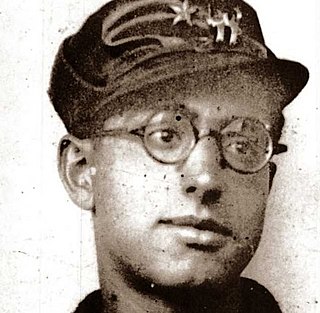
Ramón Rufat Llop (1916–1993) was a Spanish anarcho-syndicalist, agent of the Republican secret services, and anti-Franco fighter.

Ángel Viñas Martín is a Spanish economist and historian. He has published many works dealing with the Spanish Civil War focusing on the war finance as well as the international relations aspects of the conflict.

The mottos of Francoism are mottos which encapsulate the ideals of the Francoist dictatorship. Although the regime had many ideological influences, it employed Falangism in its popular movements. Falangist ideology was easily incorporated in the creation of mottos as it is believed to demonstrate a certain reluctance towards political agendas, and to favour empiricism, taking action, and the simplification of ideas.
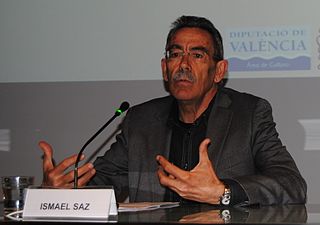
Ismael Saz Campos is a Spanish historian, specialised in the study of Falangism, Francoist Spain and the Spanish-Italian relations during the Spanish Civil War. He is a professor at the University of Valencia.
Ricardo Burillo Stholle was a Spanish police and military officer who played an important role during the Spanish Civil War. As the police chief in Barcelona, he was responsible for the repression and dismantling of the POUM in 1937. Throughout the war, he became commander of several military units, such as the 9th Division, the III Army Corps and the Extremaduran Army.
Enrique Moradiellos García is a Spanish historian whose main field of research is 20th-century history of Spain.
